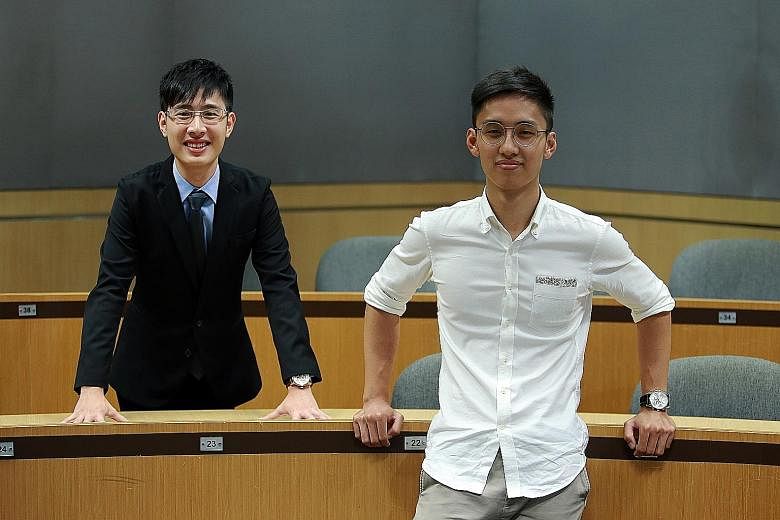A smooth investing journey without any bumps is the dream for many, but student Charlie Thang has other ideas.
The year-two student at Singapore Management University's (SMU) Lee Kong Chian School of Business says: "I haven't really lost money yet as it's been only a year, but I think it's necessary to lose something, in order to learn."
Mr Thang's perspective could differ from his peers because of his experiences working with clients as a licensed financial adviser.
After an internship piqued his interest in the industry, he decided to take the Capital Markets and Financial Advisory Services exams, and is already carving a career in the industry.
Beginners shouldn't be investing blind, he says, as "it's very important to have a clear purpose in mind for each asset in your portfolio".
He understands how difficult it is for youth to think about growing their wealth, but urges them to start doing something about it, even if it's just talking to others.
Just reading about investing sometimes doesn't make sense without context, and if you don't discuss ideas with people, it's easy to misinterpret things, Mr Thang, 22, notes.
His other advice is to simply start buying stocks.
"You may do paper trading, and see your gains and losses but they are not real. You don't experience real fear. You can put $1 million in a stock and sleep peacefully because the money is not yours. But if I put $100 into one stock, I already feel scared. The important thing is to try."
Q What's in your portfolio?
A I've a lot of asset classes in my portfolio. I've long-term saving plans to beat banks' interest rates. I'll take out a lump sum when I'm in my 30s to pay for big-ticket items.
I have a small quantity of physical gold that I bought when in the army as I was exploring investments.
I've individual stocks and shares, which are split into two categories. One group is mainly for dividends, so I've DBS stocks and real estate investment trust (Reit) units. The other category is for capital growth, so it's more of risky stocks from the United States, like Telsa Inc, solar firms and oil companies.
I also have a cash fund to take advantage of market corrections, which I call the dollar-cost averaging fund. When the market goes down, I buy in at cheap prices.
The last thing in my portfolio is insurance. Most people think it's an expense because they keep paying for it and question why they are doing so.
But what if you look at it as an investment? I'm covered for a guaranteed death benefit of $300,000 under an investment-linked policy and there are only two options.
Either you live to maturity, and you get $300,000 and maybe a bit more, or you die and it goes to your family. The maturity value at 65 would be $300,000, together with any returns from investment.
I've calculated and the total premium is about $100,000 or less. That's about a 200 per cent increase, so in that sense, you could look at it as an asset. It just depends on how you view insurance.
Q What's your best investment?
A If you talk about it in monetary terms, it was Telsa which gained about 10 per cent within a short span of two months.
But I think it's investment in myself that paid off the most, like the time I spent in my company. Without the quality of mentorship and guidance there, I would not be who I am today. It taught me a lot about how to be a person.
Q What's the most difficult thing about investing?
A First, the lack of capital. As a student, you don't have the money to invest. I set my mind to invest, but I told myself I was not going to borrow to do so, or use my parents' money, so the only way is to work to get the capital. It's possible as long as your desire is strong enough.
Save first. If you don't have a contingency fund to buffer you, you shouldn't even start investing. A good gauge is three to six months of your expenses, as a student or even a working adult.
Also, the lack of direction. In the army, you don't have anyone to talk to who knows the right things. A lot of them are just playing around.
When I got into SMU, I loved the fact that the investing culture here is so strong. How I prepared to invest was to read books and attend events, ever since I was in the army.
The most important thing is to have the community of people to discuss investment ideas with. It helps a lot when you have friends who have the same interests as you. Through SMU and its activities, we have this community where everyone discusses things freely.


